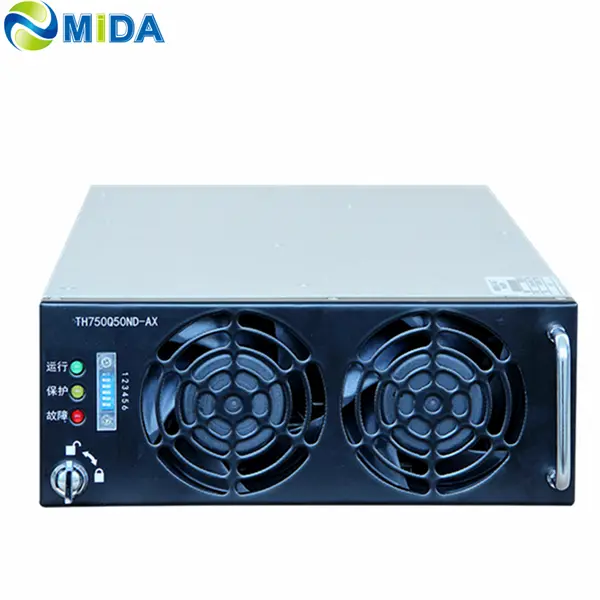Yes, you can charge an Electric Vehicle (EV) with DC (Direct Current) power. EVs typically have an onboard charger that converts AC (Alternating Current) power from the electrical grid into DC power to charge the battery. However, DC fast charging stations can bypass the need for the onboard charger and directly provide DC power to the EV, allowing for much faster charging times compared to AC charging.
15KW High Efficiency EV Charging Module Power Module for Fast DC Charger Station

15KW series EV charging rectifier is specially developed for the EV DC super charger. It has high power factor, high efficiency, high power density, high reliability, intelligent control and handsome appearance advantage. Hot pluggable and intelligent digital control techniques work together to predictively prevent failures and ensure high reliability.
Is Dc Fast Charging Harmful To Electric Vehicle Batteries?
Contrary to popular belief, Electric Vehicle DC fast charging does not necessarily harm EV batteries. In fact, modern electric vehicles are designed to handle these charging speeds and have advanced battery management systems to deal with the associated stresses. But it's important to note that frequent or prolonged use of DC fast charging can have some impact on battery health over time.
One of the main issues with DC fast charging is the increase in battery temperature during charging. Fast charging generates heat, and if not managed properly, high temperatures can reduce battery performance and lifespan. Electric car manufacturers have taken this into consideration and implemented cooling systems to regulate the temperature of the battery during fast charging. These systems help maintain optimal operating conditions, thereby mitigating any potential negative impacts.
Additionally, the depth of discharge (DoD) during fast charging also affects battery health. DoD refers to battery capacity utilization. While electric vehicle batteries can be fully charged and discharged, frequent charging (consistently charging to 100% and discharging to near-empty levels) may cause accelerated battery degradation. It is recommended to keep DoD between 20% and 80% for optimal battery life.
Another factor to consider is battery chemistry. Different EV models use different battery chemistries, such as lithium-ion or lithium polymer, each with its own advantages and disadvantages. While these chemistries have improved greatly over the years, their longevity can still be affected by fast charging. Therefore, it's important to follow the manufacturer's recommendations on using fast charging and understand any specific battery limitations.
All in all, DC fast charging is not inherently bad for EV batteries. Modern electric vehicles are designed to withstand fast charging speeds and incorporate technology to mitigate any potential damage. However, excessive use of dc home charger, high battery temperatures, and improper depth of discharge can all negatively impact battery health. It is critical for electric vehicle owners to balance convenience and battery life by following manufacturer recommendations and using smart charging practices for optimal battery performance.
Post time: Oct-19-2023





